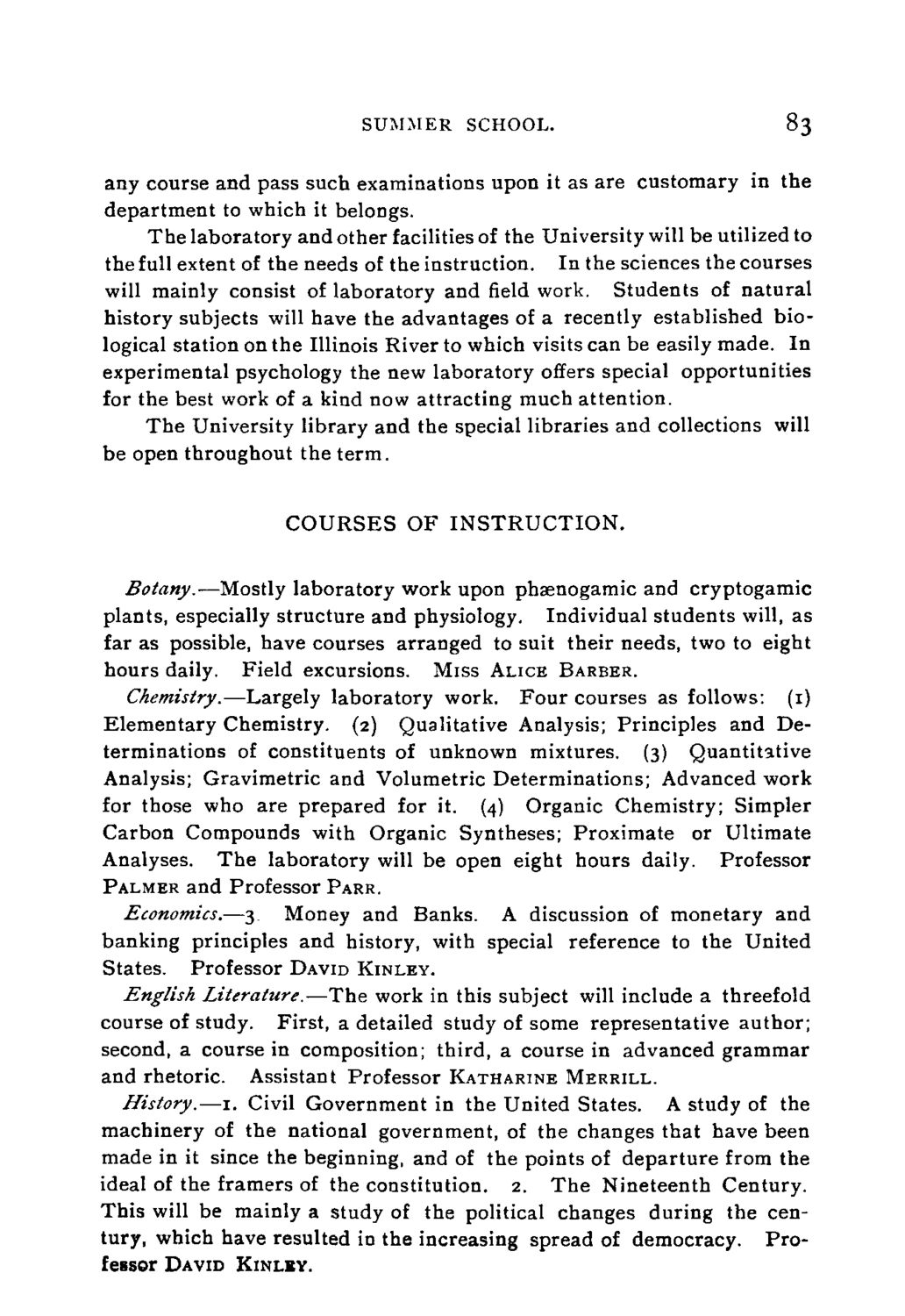Caption: Course Catalog - 1893-1894
This is a reduced-resolution page image for fast online browsing.

EXTRACTED TEXT FROM PAGE:
SUMMER SCHOOL. 83 any course and pass such examinations upon it as are customary in the department to which it belongs. The laboratory and other facilities of the University will be utilized to the full extent of the needs of the instruction. In the sciences the courses will mainly consist of laboratory and field work. Students of natural history subjects will have the advantages of a recently established biological station on the Illinois River to which visits can be easily made. In experimental psychology the new laboratory offers special opportunities for the best work of a kind now attracting much attention. The University library and the special libraries and collections will be open throughout the term. COURSES OF INSTRUCTION. Botany.—Mostly laboratory work upon phaenogamic and cryptogamic plants, especially structure and physiology. Individual students will, as far as possible, have courses arranged to suit their needs, two to eight hours daily. Field excursions. Miss ALICE BARBER. Chemistry.—Largely laboratory work. Four courses as follows: (1) Elementary Chemistry. (2) Qualitative Analysis; Principles and Determinations of constituents of unknown mixtures. (3) Quantitative Analysis; Gravimetric and Volumetric Determinations; Advanced work for those who are prepared for it. (4) Organic Chemistry; Simpler Carbon Compounds with Organic Syntheses; Proximate or Ultimate Analyses. The laboratory will be open eight hours daily. Professor PALMER and Professor PARR. Economics,—3 Money and Banks. A discussion of monetary and banking principles and history, with special reference to the United States. Professor DAVID KINLEY. English Literature.—The work in this subject will include a threefold course of study. First, a detailed study of some representative author; second, a course in composition; third, a course in advanced grammar and rhetoric. Assistant Professor KATHARINE MERRILL. History.—1. Civil Government in the United States. A study of the machinery of the national government, of the changes that have been made in it since the beginning, and of the points of departure from the ideal of the framers of the constitution. 2. The Nineteenth Century. This will be mainly a study of the political changes during the century, which have resulted in the increasing spread of democracy. Professor DAVID KINLIY.
|